| Coach | NA |
| Venue | Estadio Ofelia Rosenzuaig |
Agropecuario predictions
Predictions for Agropecuario: See upcoming and historic predictions for Agropecuario below.
Disclaimer: Past performance does not guarantee future results. Betting involves risk; only wager what you can afford to lose. Always gamble responsibly.
Agropecuario latest results
| 12/04 | - | ||
| 07/04 | 1 - 5 | ||
| 29/03 | 1 - 1 | ||
| 23/03 | 1 - 1 | ||
| 18/03 | 1 - 2 |
Agropecuario latest transfers
| Date | Player | From | To | Price |
|---|---|---|---|---|
| 2019-01-21 | E. Díaz | Agropecuario | Talleres Cordoba | € 180K |
Primera Nacional standings
| Rank | Team | MP | W | D | L | GF | GA | GD | Pts |
|---|---|---|---|---|---|---|---|---|---|
| 1 |
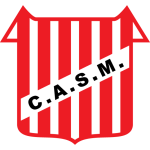 San Martin Tucuman
San Martin Tucuman
|
10 | 6 | 1 | 3 | 13 | 5 | 8 | 19 |
| 2 |
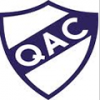 Quilmes
Quilmes
|
9 | 5 | 4 | 0 | 10 | 2 | 8 | 16 |
| 3 |
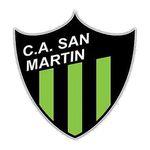 San Martin S.J.
San Martin S.J.
|
10 | 4 | 4 | 2 | 10 | 9 | 1 | 16 |
| 4 |
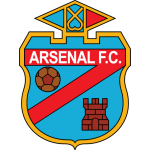 Arsenal Sarandi
Arsenal Sarandi
|
10 | 4 | 3 | 3 | 10 | 9 | 1 | 15 |
| 5 |
 All Boys
All Boys
|
9 | 3 | 5 | 1 | 7 | 5 | 2 | 14 |
| 6 |
 Agropecuario
Agropecuario
|
9 | 3 | 4 | 2 | 12 | 10 | 2 | 13 |
| 7 |
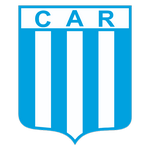 Racing Cordoba
Racing Cordoba
|
9 | 3 | 4 | 2 | 8 | 7 | 1 | 13 |
| 8 |
 Alvarado
Alvarado
|
9 | 3 | 4 | 2 | 8 | 7 | 1 | 13 |
| 9 |
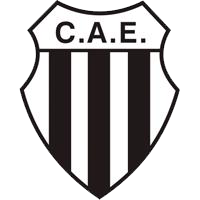 CA Estudiantes
CA Estudiantes
|
9 | 3 | 4 | 2 | 5 | 5 | 0 | 13 |
| 10 |
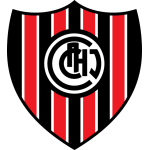 Chacarita Juniors
Chacarita Juniors
|
10 | 3 | 3 | 4 | 9 | 11 | -2 | 12 |
| 11 |
 San Miguel
San Miguel
|
9 | 1 | 7 | 1 | 5 | 5 | 0 | 10 |
| 12 |
 Tristan Suarez
Tristan Suarez
|
9 | 2 | 4 | 3 | 10 | 11 | -1 | 10 |
| 13 |
 Guillermo Brown
Guillermo Brown
|
9 | 2 | 4 | 3 | 8 | 9 | -1 | 10 |
| 14 |
 Talleres Remedios
Talleres Remedios
|
9 | 2 | 4 | 3 | 6 | 7 | -1 | 10 |
| 15 |
 Gimnasia Jujuy
Gimnasia Jujuy
|
9 | 3 | 1 | 5 | 7 | 9 | -2 | 10 |
| 16 |
 Ferro Carril Oeste
Ferro Carril Oeste
|
10 | 2 | 4 | 4 | 12 | 15 | -3 | 10 |
| 17 |
 Patronato
Patronato
|
10 | 2 | 4 | 4 | 6 | 12 | -6 | 10 |
| 18 |
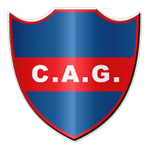 Club Atlético Güemes
Club Atlético Güemes
|
9 | 1 | 6 | 2 | 5 | 6 | -1 | 9 |
| 19 |
 Deportivo Maipu
Deportivo Maipu
|
9 | 2 | 1 | 6 | 7 | 15 | -8 | 7 |
About Agropecuario
Club Agropecuario Argentino, often simply referred to as Agropecuario, is a professional football club based in Carlos Casares, Buenos Aires, Argentina. The club, which is relatively young in the Argentine football scene, has made a name for itself in a short span of time.
Agropecuario was founded on December 23, 2011, by businessman Bernardo Grobocopatel, who is part of the Los Grobo Group, one of the largest agribusiness companies in South America. The club's name and emblem, which features a wheat sheaf, reflect its deep ties to the agricultural industry.
Despite its recent inception, Agropecuario quickly climbed the ranks of Argentine football. The club started in the Torneo Argentino B, the fourth division of Argentine football, and achieved three promotions in just six years. In the 2016-2017 season, Agropecuario won the Torneo Federal A, which led to their promotion to the Primera B Nacional, the second division of Argentine football. This rapid rise marked them as one of the fastest-growing clubs in the country.
Agropecuario's home ground is the Estadio Ofelia Rosenzuaig, which has a capacity of about 8,000 spectators. The stadium, named after the mother of the club's founder, is known for its modern facilities, including a high-quality playing surface that is maintained to a high standard, reflecting the club's commitment to professional football.
The team's colors are green and white, symbolizing the fields of wheat that are a common sight in the agricultural region where the club is based. The club's nickname, "El Sojero", is a nod to the soybean crops that are a significant part of Argentina's agribusiness.
Agropecuario's short but impressive history is a testament to the club's ambition and determination. Despite being one of the youngest clubs in the Argentine football league system, Agropecuario has proven that it can compete with more established teams. The club's rapid rise through the ranks of Argentine football has not only brought pride to the city of Carlos Casares but also put Agropecuario on the map as a club to watch in the future.
As of now, Agropecuario continues to compete in the Primera B Nacional, striving to reach the top tier of Argentine football, the Argentine Primera División. The club's journey thus far serves as an inspiration to other young football clubs, demonstrating that with hard work, dedication, and a clear vision, rapid success in the competitive world of football is indeed possible.















